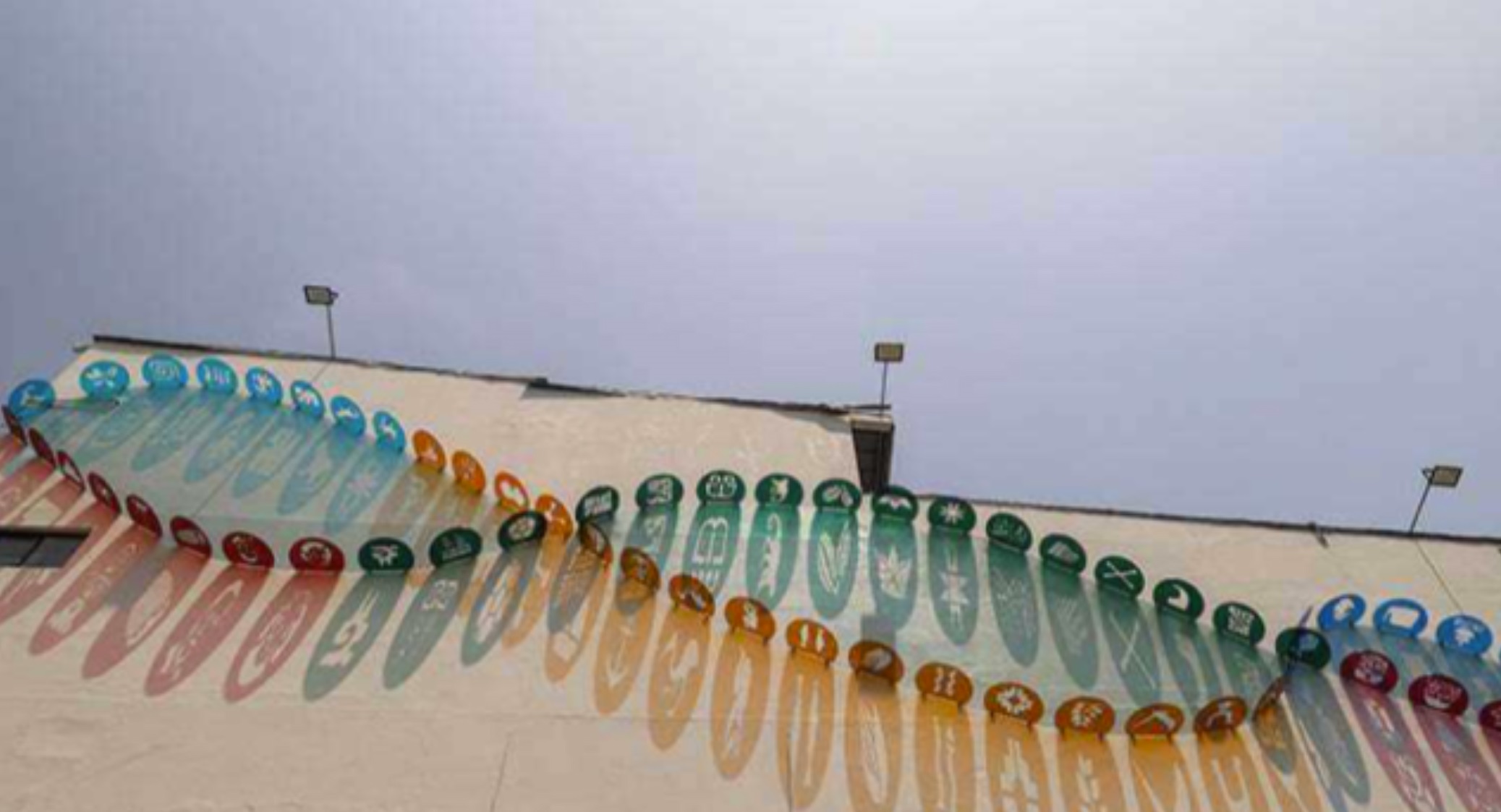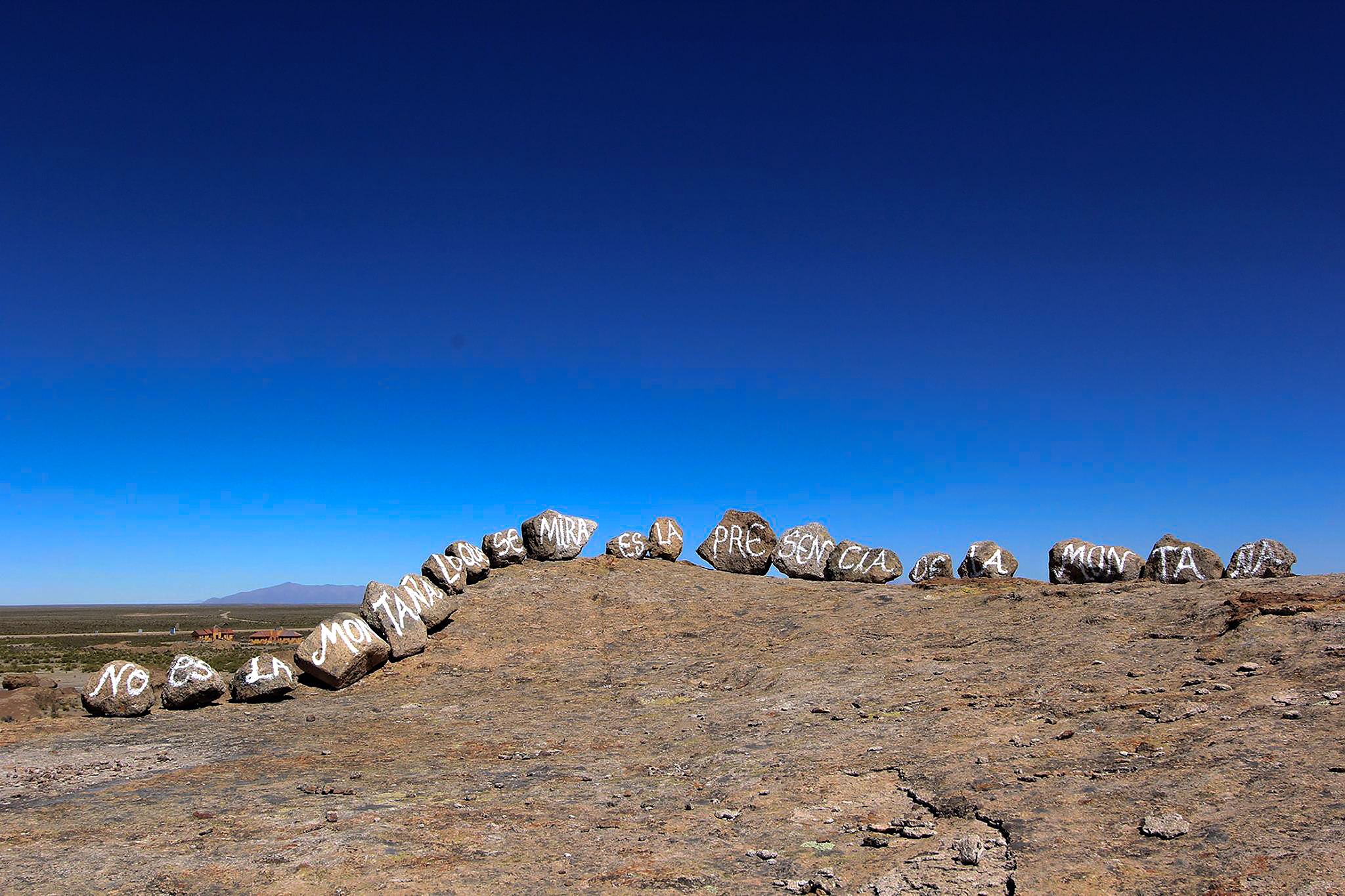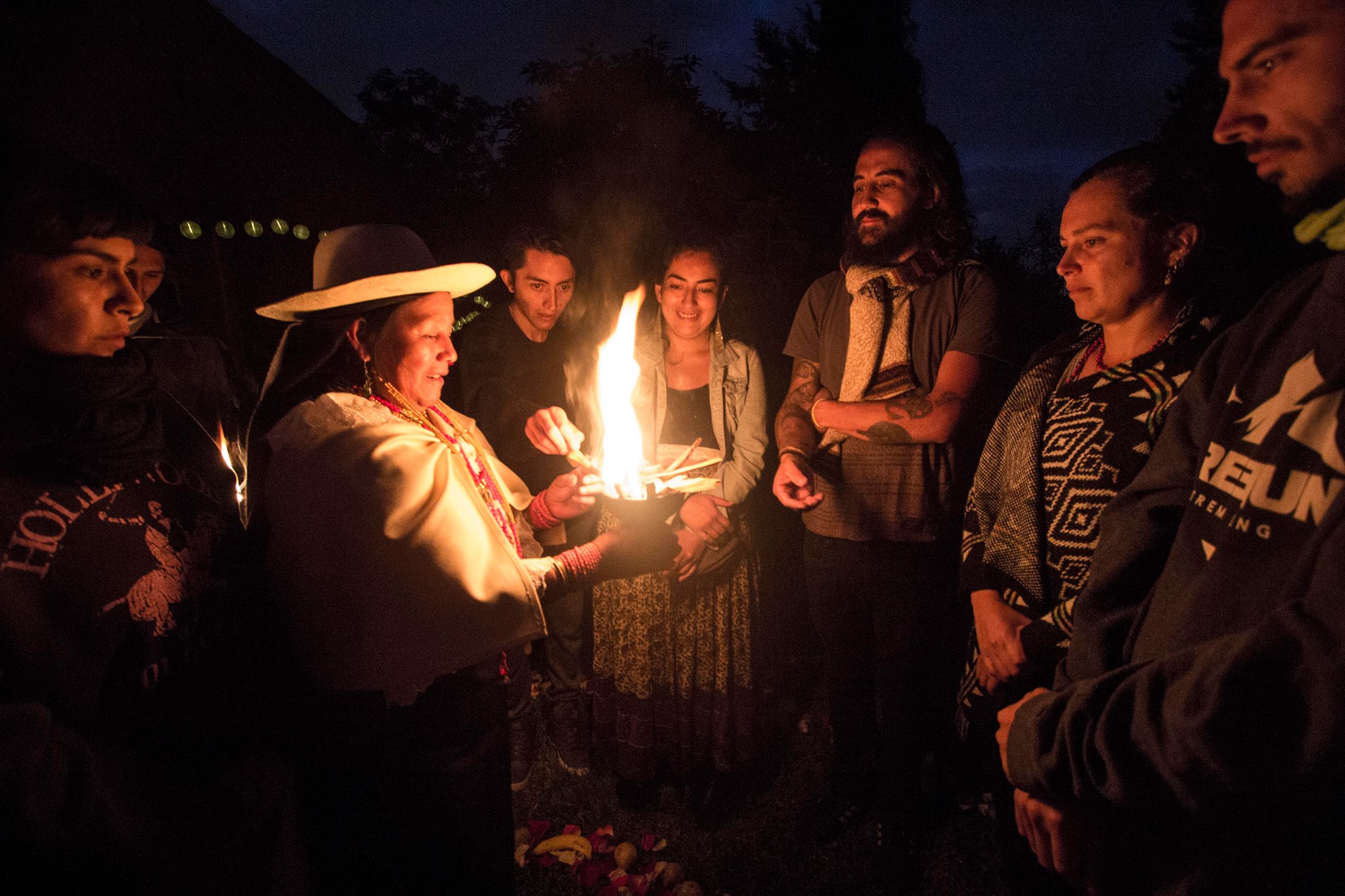Hydropoetics – Hydropolitics
past
Guadalajara, México
2022—II
10/10/2022 — 10/22/2022
Art and education residency organized by La Escuela___, together with Casa Orozco and the Secretaría de Cultura de Jalisco through the Escuela de Artes Jalisco, with participation from the Ecuadorian artist and educator José Luis Macas Paredes, in collaboration with Mexican artist Ana Paula Santana.
The project is conceived as an exploration guided by the presence of water in the city of Guadalajara, both from its memories in the ecosystem and the construction of the landscape, as well as its poetic and political dimension in the current urban life.
It also seeks to value the importance of water for life, emphasizing its materiality and behavior from the sensorial and perceptive. It also intends to inquire into critical views in the face of historical and contemporary disputes concerning water management.





The proposal consists of a series of workshops and walks structured around the chakana or ‘Andean cross,’ an element that allows relating to different aspects of a place in terms of complementarity between the human and the material and immaterial environment. In the case of Guadalajara, a historical relationship with water is patent in the toponym of the founding place of the city: the Valley of Atemajac, a Nahuatl word that means 'place where the water forks.' It also points to the relevance of the San Juan de Dios River as an essential artery in the urban layout in colonial times, the background for its piping in the twentieth century, and its subsequent socio-environmental impact on the city.
"Educational practices can contribute to art in developing didactic dynamics and learning experiences linked to geographical, historical, and cultural contexts. Situated, emancipatory, affective, and diverse didactics, capable of transcending the classroom space and recognizing nature as an enormous creative source."

The residency project is designed to unfold with a group educators and mediators. It aims to articulate a set of creative and pedagogical experiences regarding the relationships between landscape, ecology, architecture, and urbanism. Based on a series of collaborations, there will be four guided walks with four people linked to the study, treatment, and defense of water in the region, complemented with workshops oriented toward developing artistic interventions in public spaces, using images, sounds, and actions. The documentation of the project will be displayed afterward at Casa Orozco.
"I imagine and analyze anthropological phenomena with sound and other materials. I usually create from experimental arts, using error, repetition, disruption, and accumulation as creative tools; paying close attention to how sound affects us physically and psychologically."



Residency
The residency unfolded as a formative program of meetings, workshops, laboratories, and talks based on research regarding the presence of water in the city. The work examined the ties between the citizens and the extinct, invisible, or endangered rivers, such as the San Juan de Dios River (piped), which stirred Macas Paredes’ concern to review the presence of these bodies of water within this geographical and cultural context.








The concern for water is present on a global scale. José Luis addresses this urgency from art and education, which has led him to work on recognizing knowledge implicit in the sensibilities activated when studying solstices and equinoxes from different types of cultural calendars. Water is present and acts in different ways in the various cycles of nature, highlighting its importance for the permanence of life. Macas Paredes believes that we have sensory experiences with water every day: when drinking it, showering, or feeling it evaporate, as it comes out through the pores of our skin.








In Hydropoetics – Hydropolitics water reveals its multiple facets: as a living sensitive element that surpasses the idea of a resource, which activates a critical view in which humanity sees itself face to face with nature; noticing the sensory allows us to go beyond discourse or perception. This exercise aims to awaken memories as individuals and collectivity to reflect on what we are as a society and highlight urgent issues to be addressed in our contexts.

